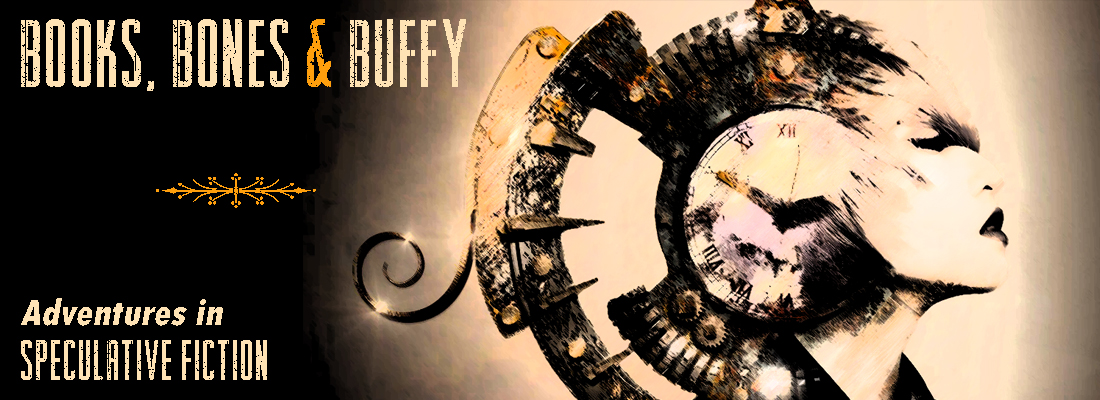The concept of Incarnation is brilliant: what if Bram Stoker had written Dracula in order to cover up the fact that vampires actually exist, and the book was created for the sole purpose of throwing off the scrutiny of the public? And what if Lucy Westenra is a real vampire who finds out about the book? She’d want to track down Stoker and find out why he lied about her, and that’s exactly what happens. I found Incarnation to be a fun romp through a slightly steampunk Victorian England where vampires, werewolves and trolls slink through the dark and dank London streets, and mad scientists scheme against humans and vampires alike.
Lucy Weston wakes from a dream of the opera to find herself buried underground in a coffin, a wooden stake through her heart. She claws her way out only to realize that she is having trouble remembering how she got there. As her memories slowly return, she realizes that she has been “incarnated” as a vampire. She eventually makes her way to her family home, but finds it deserted. On her father’s desk, however, is a clue: a book called Dracula with a character named Lucy “Westenra” and the tale of how she became a vampire. Horrified with the discovery that Bram Stoker has written about her, Lucy tracks him down and threatens him with her new-found vampire strength into telling her why he wrote the book. Stoker finally admits that he did indeed write the book about Lucy, but swears there were forces beyond his control that compelled him to do so. He sends Lucy to a shady bar on Fleet Street called the Bagatelle where she can meet others of her kind.
At the Bagatelle, Lucy gets more than she bargained for, but she meets an important character there, a man named Marco that can not only explain Lucy’s fate as a vampire, but becomes an eventual love interest as well. The tale of King Arthur comes into play and Marco and Lucy set out to find the vampire that turned her, and who ultimately plays a critical role in stopping the war between vampires and humans.
As a Buffy the Vampire Slayer fan, I saw shades of the show throughout the book. There are “Slayers” who keep the vampire population in check and “Watchers” who keep the city safe from crime. I don’t know if the author added these elements because she is a Buffy fan as well, but I like to think she did. Although the novel is described as “steampunk,” the actual steampunk details are subtle and really only live in the background of the story. The London Tube has been built, dirigibles fly overhead and spy on the populace, and Watchers glide silently through the city on “teslaways,” mechanical conveyances created by, you guessed it, Tesla. What I did like about these steampunk touches was that Cornwall uses technology as a cautionary tale and raises questions about the possible horrors of technological advancement.
The flowery Victorian language seems well-suited for this type of story, although I have to say I did get tired of the overblown descriptions after a while. And the characters were Victorian through and through, from the clothes they wore to their proper mannerisms when dealing with the opposite sex. The fascinating inclusion of Morgaine and Mordred from the King Arthur legend was a unique and engaging way to explain Cornwall’s captivating world, and I felt the author also brought fresh blood, so to speak, to the vampire legend by tying in the granddaddy of all vampire novels, Dracula. But although I found Lucy to be a plucky and strong-minded female character, I honestly kept forgetting she was a vampire! Her blood lust was occasionally thrown into the story to remind us of what she was, and once in a while she would suddenly discover she could fly! or run really fast! or smell the overwhelming stench of blood! But personally, I didn’t buy it. Lucy as a human was much more interesting to me than Lucy as a vampire.
But overall, I enjoyed Incarnation, and even though the story has a satisfying ending, the author leaves room for more to unfold in a possible sequel. For a well-researched plunge into the horrors that lie beneath the mortal streets of Victorian London, this book should not be missed.
Many thanks to Simon & Schuster for providing a review copy.



Great review, Tammy! The concept is really cool, and steampunk/Buffy/vampires sounds like a winning combination to me. And of course the heroine’s name is top-notch 🙂
Does book does not fail to remind me of The Mortal Instruments as werewolves, vampires etc are associated.